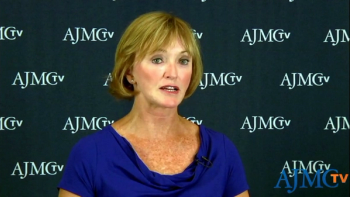
Value-Based Care
Latest News
Latest Videos

CME Content
More News

ACOs are entering into risk-based deals. Research suggests that many of these deals will have uncertain outcomes, which a new tool might help mitigate.


Hackensack Alliance ACO integrates pharmacists and adopts new technology as it joins in the bold experiment to lower costs and improve quality under health reform.

As accountable care organizations proliferate across the nation, delivery systems still struggle to balance quality improvement, cost containment, and migration toward accountable care. This paper describes the phased approach where the University of Florida Health Science Center and Shands Teaching Hospital and Clinics, Inc, and Orlando Health have jointly developed a series of clinical and health services that are of the highest quality and are offered at the lowest cost. The result is a regional collaborative that will be the foundation for a regional accountable care organization, first leveraging clinical core competencies, then moving to a more integrated model.

There is no question that the number of accountable care organizations in Medicare and total cost of care contracts in the private sector is growing, along with the amount of care provided under these contracts.

Almost half of 206 hospital executives polled in a recent survey said they do not intend to use an accountable care organization (ACO)-like model in their health systems. Only 20% of those polled currently participate in an ACO.

Thousands of hospitals, large and small, are girding for cuts to their Medicare payments in 2014, as federal pay-for-performance programs aimed at boosting clinical quality, improving patient experience and preventing unnecessary hospital readmissions roll into their second year.

The downward trend in preventable hospital readmissions that began in 2012 has continued well into this year, according to data published Friday on the CMS' blog. Quality experts were impressed but had questions.

A bicameral effort is quickly gaining traction in an effort that would forever change the sustainable growth rate (SGR) and Medicare reimbursement model.

Ora Pescovitz, MD, CEO of the Michigan Health System, says that academic medical centers like those at the University of Michigan are among those in the lead with patient-centered medical homes (PCMHs) and accountable care organizations (ACOs).

Nearly every Institute of Medicine report or blueribbon panel tasked with developing ideas for fixing our healthcare delivery system points to the same solution: greater use of health information technology (HIT).

Although health information technology interventions are associated with cost savings and revenue gains, there still are few articles on this topic.

Organizations pursuing change need the infrastructure and tools to effect it. Health information technology is critical to delivery reform but its development will require support and time.

The American Journal of Managed Care was founded in 1995, during the last period of serious reexamination of how healthcare is paid for and how it's delivered. Nearly 20 years later, after the retreat of the first managed care revolution, per capita healthcare costs have more than doubled, and there is again a strong movement toward payment and delivery system reform.

Real-time location systems can capture face time and trade-offs between face time and diagnostic testing so that clinicians' responses to time pressures can be measured.

Although increasing electronic health record use and delegating the related work improve physician productivity, these 2 strategies interact differently based on practice size.

A study to assess clinician attitudes and experiences after participating in a New York City cardiovascular disease focused quality recognition and financial incentive program using health information technology.

The Perfect Depression Care initiative serves as an example of how suicide prevention programs can collect real-time mortality data internally to drive rapid quality improvement.

Medicare payment reforms require valid measures of high-quality healthcare. Different types of administrative wait time measures predicted glycated hemoglobin levels for new and returning patients.

More hospitals are receiving penalties than bonuses in the second year of Medicare's quality incentive program, and the average penalty is steeper than it was last year, government records show.

The American Journal of Managed Care recently sat with Marilyn Tavenner, administrator of the Centers for Medicare & Medicaid Services (CMS), as she discussed CMS's role in the new, evolving healthcare landscape. This special AJMCtv interview highlights just some of the initiatives CMS has implemented, as well as some of the challenges that remain for the organization.

Some of the most significant changes in healthcare reform are being led by oncologists, especially as innovation and team-based collaboration are increasingly becoming the standard in cancer care delivery.

Among state experiments in Medicaid policy, Colorado's accountable care collaborative program is showing early successes in coordinating care and curtailing overutilization - and its analytics platform is supporting a good deal of the collaboration, despite a number of hurdles.

Making health data more transparent could give momentum to an effort aiming to make hospital operations more cost-effective and driven toward improving health outcomes.

Electronic health records are changing the way your family doctor does business, with most now able to view lab results or send a prescription online, a change that advocates say will improve efficiency and lead to fewer medical errors.














